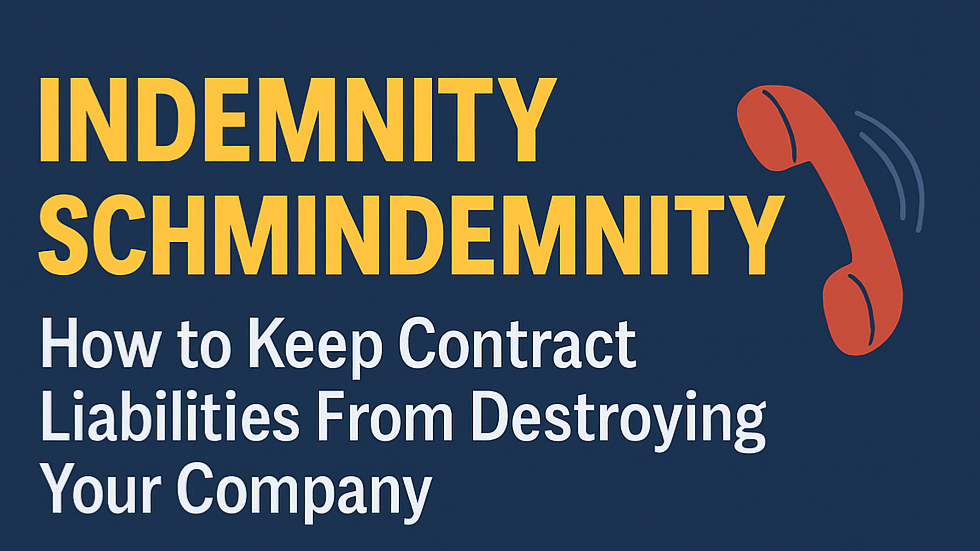Munyan Law Blog
Why Every “Small” Business Sale Deserves Legal Precision | Munyan Law

“But it’s just a small deal.” I hear that regularly when I am representing a business owner selling his or her business for less than $1,000.000. Hmm.... In my mind, unless you’re a billionaire, any amount approaching $1,000.000 is definitely a big deal.
Sometimes attorneys catch this mindset, too. I can see this at work when the buyer’s attorney sends me a purchase agreement woefully short on details impacting both the buyer and the seller.
Some examples -
- Poorly crafted language
The right words always count, especially in a legal document. Is the language straightforward and understandable? If I don’t understand what the writer is saying, then a judge enforcing it won’t either. What does “included in the prorations will be any customers of the seller that would be an account receivable” mean? I have absolutely no idea. - Insufficient Definitions
Cursory definitions usually don’t cut it. Defining accounts receivable as “accounts outstanding as of closing date, including any amounts owed for services rendered but not yet paid” is not sufficient. What about the rights of the seller to collect on notes, lawsuits, and other claims arising before the closing date? - Key Details Not Spelled Out
Details matter. Seller’s employees must be paid all funds owed to them on the closing date. Accounts receivable payments earned before closing, but received (by the buyer) after closing, must be promptly forwarded to the seller. Client deposits, rent, and utility expenses must be prorated. And on and on. - Unlimited Seller Liability
The seller is selling his business, not his soul. The indemnification liability of the seller needs to specifically exclude any liability for “consequential, punitive, and indirect” damages. Consequential means “indirect losses, punitive means “intended as a punishment,” and indirect means “non-immediate.” They also need to be time-bound. Tax liabilities survive until the statute of limitations runs? OK. Ownership representations survive indefinitely? Fine. But most other post-closing liability obligations need to expire after three years.
Small deal? Maybe. But no matter the size, I do my best to wordsmith well-drafted documents, with clear definitions, sufficient details, and reasonable protections for my clients.
How can I help you?













